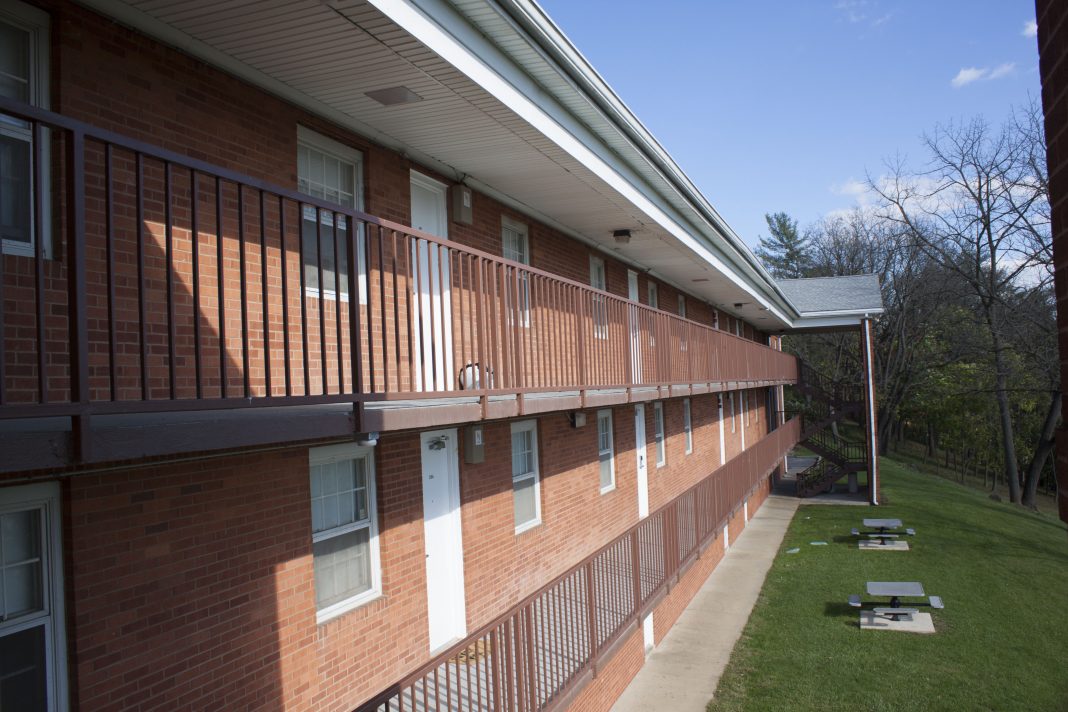On Tuesday, Oct. 24, members of the on-campus Muhlenberg community were alerted to two separate incidents occurring within approximately an hour of each other.
Around 8:00 p.m., Campus Safety received a report of indecent exposure on Chew Street, near Egner Memorial Chapel.
Then, at 9:12 p.m., a separate emergency alert was sent out regarding a “crime in progress” and an order to shelter-in-place.
A student who was present when statements were given to both Campus Safety and the Allentown Police Department stated that the individuals took money from the students and were holding a gun.
Two other students saw the individuals laughing as they ran on the Benfer balconies. They left Benfer and began running up the hill behind Trexler Library and away from the dorm. Neither of the eyewitnesses recognized the two individuals in question or had seen them before on campus.
The Allentown Police Department could not be reached for comment about any updates to the investigation.
In the time between the initiation and lifting of the shelter-in-place directive, Campus Safety and the Allentown Police Department first conducted joint sweeps of publicly accessible buildings near Benfer, such as the Trexler Pavilion, the Center for the Arts and the library. From there, the officers cleared the rest of the public buildings on campus before issuing an all-clear at 11:17 p.m.
“We had a pretty high confidence level that the perpetrators were no longer on campus,” said Brian Fidati, Director of Campus Safety. “But we still wanted to exercise an extra degree of caution for the safety of everyone on campus.”
According to an email sent on Oct. 25 by Allison Gulati, Dean of Students, the incidents themselves resulted in no physical harm to any member of the campus community. Thus, many of the conversations on campus shifted to the emergency communications themselves.
The Clery Act, named after a Lehigh University freshman who was raped and murdered in 1986, was amended following the Virginia Tech mass shooting to require institutions to issue “timely warnings” in the event of an incident that threatens the safety of students or employees.
In compliance with the Clery Act, Muhlenberg utilizes the E2Campus emergency alert system, which allows College officials to send out the timely warning through text messages and emails.
A goal of communications in crisis situations is to avoid releasing information that may contradict later findings.
One of the advantages of E2Campus is that pre-prepared messages are crafted for a variety of incidents, such as a crime-in-progress or an active shooter, says Fidati.
These initial messages are always followed up by more detailed communications through email, like last Tuesday’s incidents.
In conversations with students, a prevailing theme was that the lack of detailed information in the College’s first message after the armed robbery was anxiety provoking.
Fidati can understand that perspective, especially in today’s world where people expect details to be delivered immediately. Ultimately, the Clery Act, as well as the department’s own responsibility to ensure the campus’ safety, values the importance of a timely warning with concrete instructions over a detailed first message.
“Our job is to send out accurate information for people to take immediate action to keep themselves safe,” said Fidati. “If we wait several minutes to give specific details, somebody may be unaware of the need to shelter in place and something bad may happen as a result.”
Bill Keller, Executive Director of Communications agrees with the premise of sending out an action plan and supplying details afterwards. A goal of communications in crisis situations, he says, is to avoid releasing information that may contradict later findings.
“As we confirm the information itself and know that it will not put students or responding Campus Safety officers in a compromised situation, we become more confident in reporting it,” Keller added.
In a campus-wide email sent on Oct. 26, Gulati identified the role of local media as an additional concern for reporting information while the incident was ongoing.
“Various publications have raised questions and shared assumptions about the motivation for this incident or contextual details surrounding it that have not been confirmed by the college or Allentown Police,” said Gulati in the email. “I encourage all of us to refrain as much as possible from making broad generalizations that could be hurtful within our community.”
Local news organizations rushed to report the Benfer incident while unconfirmed details circulated on social media.
“When news is breaking, there’s almost always misinformation swirling about. Responsible news organizations have a policy to independently confirm news from at least two sources,” said Dr. Jeff Pooley, Associate Professor of Media & Communication. “One unfortunate side effect of social media is that the old race to ‘scoop’ a competitor is no longer constrained by the production schedule.”
Ultimately, the College will continue to revise its emergency management and response protocols and make recommendations for future adjustments. Fidati added that early conversations have indicated the need for stronger consistency in word choice and messaging, as well as additional educational opportunities regarding actions like sheltering in place.






















